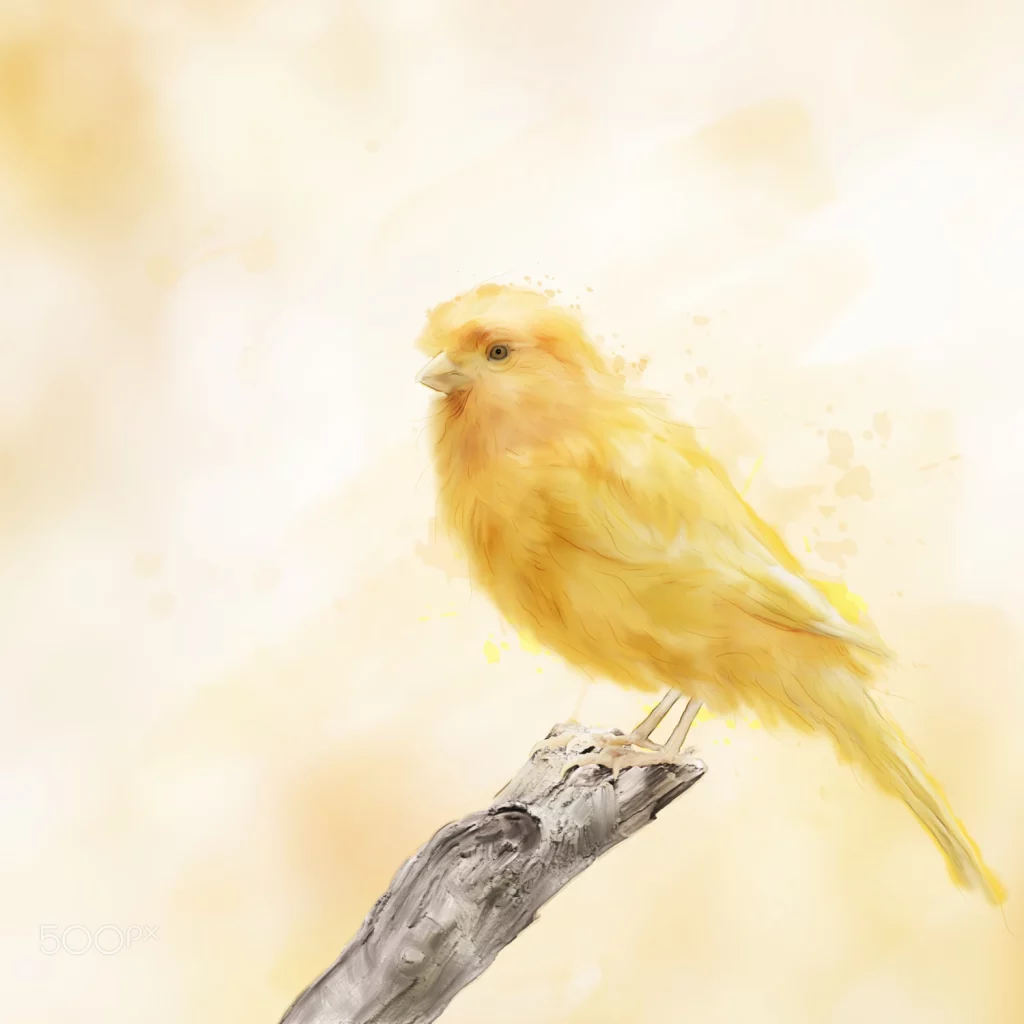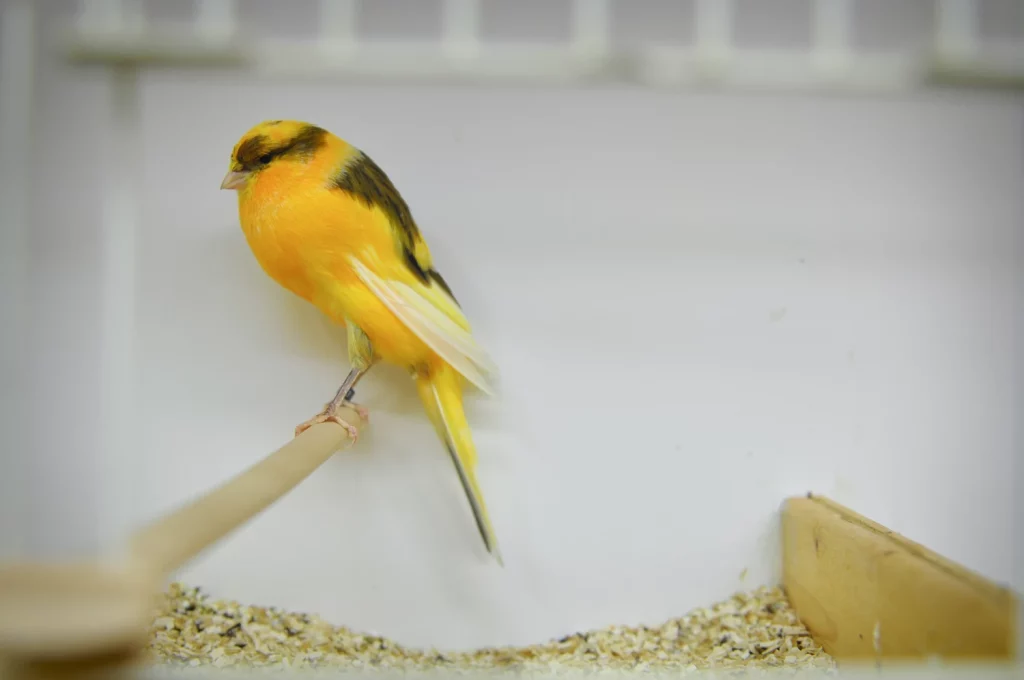How to Keep a Happy Canary

A canary makes a lovely pet and its sweet songs are enjoyable to listen to. Canaries are easy to take care of, but it’s important that they be happy and healthy. If a canary is sick, it will not sing. Signs that a canary is sick include it sleeping a lot and being apathetic to its surroundings.
Health
Canaries enjoy the company of other canaries, but only if the males are caged separately. They’ll chirp and sing their heads off in tandem, and they’re most vocal when the sun is shining. If a canary seems sad, it’s best to consult an avian veterinarian to rule out disease or malnutrition.
A diet of high-quality canary seed and pellets should provide 70% of a canary’s nutrition, while fresh vegetables, leafy greens and fruits should make up the rest. The seeds in a canary’s food supply important antioxidants like lutein and zeaxanthin. They also contain the plant sterol beta-sitosterol, which is reputed to help control diabetes.
When handling a canary, check its health by feeling along the breast bone. If the bone feels sharp and the flesh underneath sunken, the bird is underweight. The canary may not live long enough to get well, so it’s important to feed it more food and to treat any illnesses it may have.

Training
Canaries are solitary birds by nature, but still need a stimulating environment to stay happy and healthy. They are very intelligent, and respond well to patient, consistent training.
Canary owners can train their pet to come out of the cage, and even land on their hand. This can be done by luring the bird with treats, but it is important to let them get used to being outside of their cage first. The room where the canary is kept will need to be quiet and free of distractions such as kids, dogs, and cats. It also needs to be at eye level, so that the canary feels comfortable.
To help your canary feel at home, you can cover its cage at night so it knows that it is time for bed. You can also supplement its diet with fresh vegetables and fruits. You should also clean the cage and water dishes daily. Lastly, make sure to use a low sound or whistle whenever you enter the room, so that your canary is aware of your presence without feeling threatened.

Care
A canary’s home environment is very important to their well-being. They need a quiet, peaceful space that is free from other pets (especially cats and dogs), loud noises and drafts. They also need a room where they can rest and sleep to the full extent of their ability.
A medium-sized cage should be used. The cage should be kept away from washing machines, TVs and other noisy appliances that can disturb canaries’ sensitive hearing. The location should also be free of direct sunlight and hot or cold drafts.
Fresh food should be available at all times. The staple diet should include a canary mix with a little rapeseed and canary grass to give it added fibre. It should be supplemented with protein-rich egg food on a daily basis.
Treats such as seed bells, honey sticks and millet spray can be offered. They are a great way to bond with your canary and encourage natural foraging behaviours.

Feeding
When a canary feels comfortable it’s more likely to sing. Make sure that your canary has a spacious cage that is clean and free from drafts. Keep it away from noisy areas of your home like televisions and washing machines.
Feed your canary a staple diet of a quality bird seed mix. This should account for 20% of its daily diet.
Offer bite-sized pieces of fresh fruit and vegetables, which should make up about 5-10% of its daily intake. Make sure that these foods are thoroughly washed and cut into small, manageable chunks. Avoid avocado as it can make your canary ill.
Protein is an important part of a canary’s diet (about 12%). Egg food, finely chopped chicken, insects or powdered commercial feed will supply the necessary protein for canaries. Add vitamin/mineral/amino acid supplements to your canary’s fresh foods to ensure that he gets all the vitamins and minerals he needs. Talk to your avian vet about the correct supplement for your canary.





